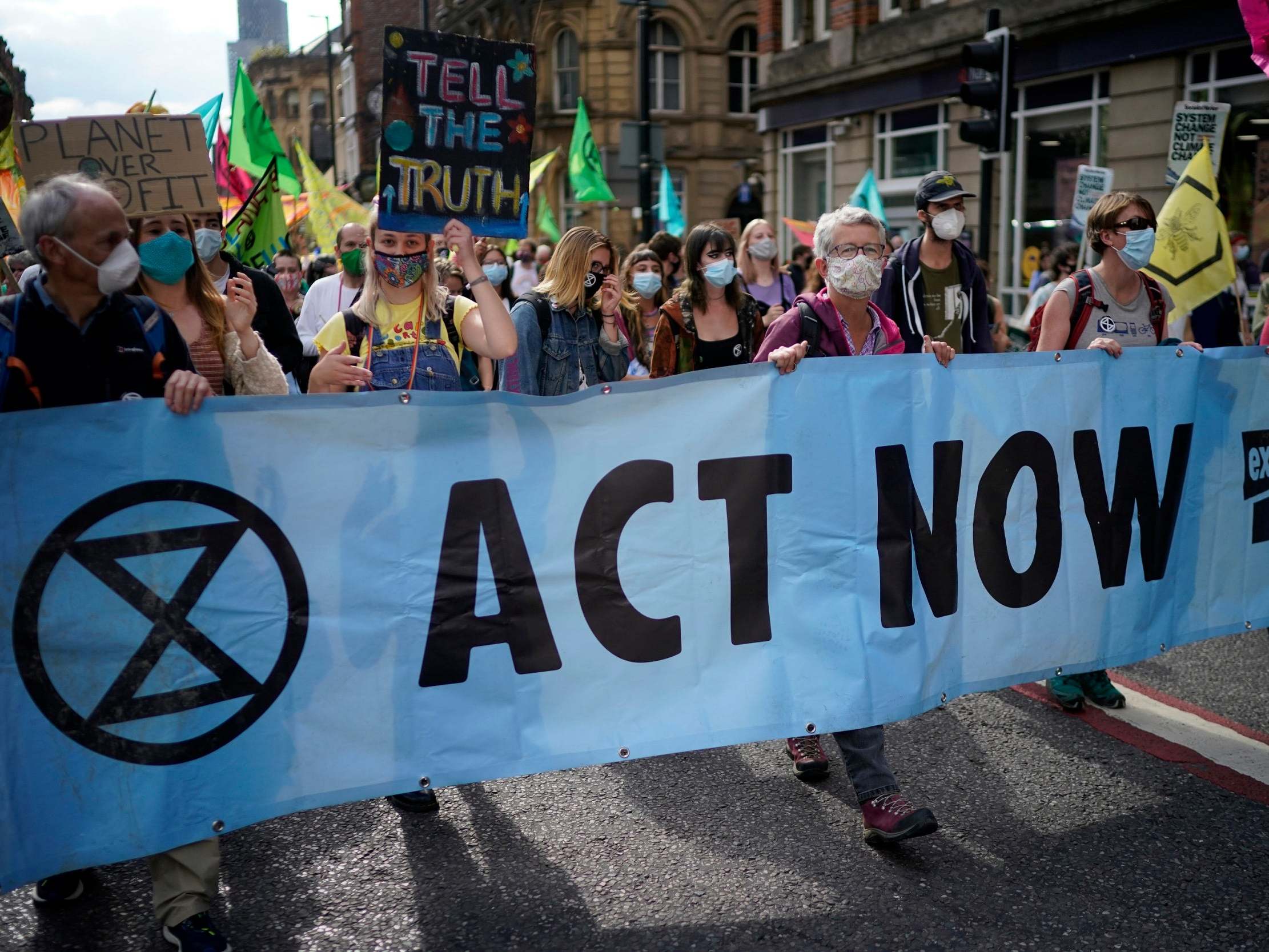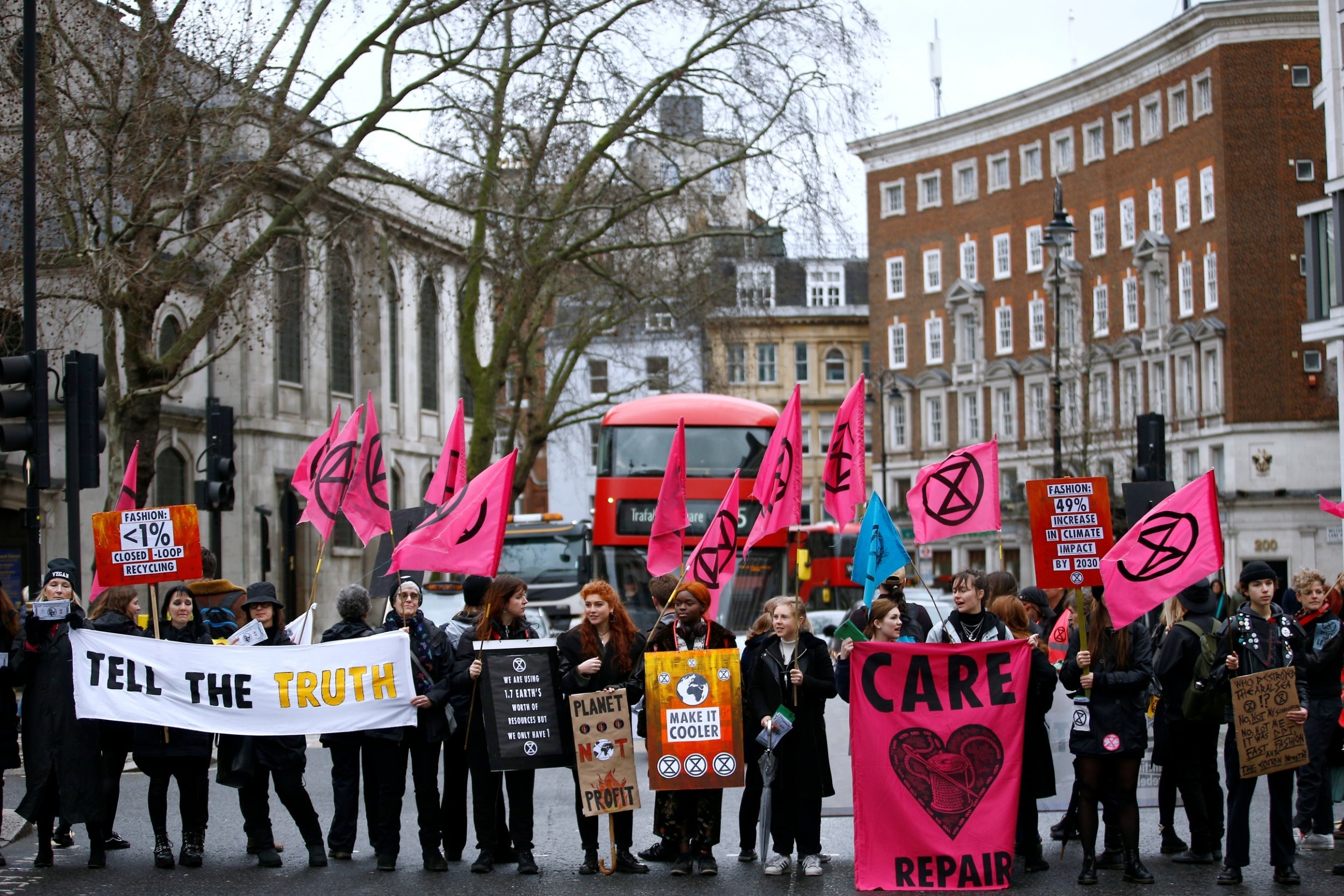Extinction Rebellion urges government to ‘stop trying to criminalise protesters’ amid wave of collapsed cases
Exclusive: Courts increasingly refusing to punish climate protesters as Supreme Court ruling bolsters human rights arguments

Your support helps us to tell the story
From reproductive rights to climate change to Big Tech, The Independent is on the ground when the story is developing. Whether it's investigating the financials of Elon Musk's pro-Trump PAC or producing our latest documentary, 'The A Word', which shines a light on the American women fighting for reproductive rights, we know how important it is to parse out the facts from the messaging.
At such a critical moment in US history, we need reporters on the ground. Your donation allows us to keep sending journalists to speak to both sides of the story.
The Independent is trusted by Americans across the entire political spectrum. And unlike many other quality news outlets, we choose not to lock Americans out of our reporting and analysis with paywalls. We believe quality journalism should be available to everyone, paid for by those who can afford it.
Your support makes all the difference.Extinction Rebellion has called for the government to stop “trying to criminalise” its protesters after a succession of cases collapsed.
Judges have quashed several verdicts in recent days amid a tide of appeals against convictions for highway obstruction during demonstrations over climate change.
Appeals loom for dozens more cases and Extinction Rebellion expects its legal success to continue following a Supreme Court ruling that protests can be a lawful excuse to block roads.
Activists argue it is not in “the public interest” to continue prosecutions against peaceful protesters, with many of those who are convicted receiving no punishment or minor fines.
Zoe Blackler, an Extinction Rebellion spokesperson who documents trials, told The Independent: “It’s time the government stops criminalising those peacefully raising the alarm and starts fulfilling its duty to protect the people.”
She added that the group had chronicled a recent increase in absolute discharges – where courts decide to impose no punishment – and cautions handed to protesters.
The government is backing controversial new protest laws in the Police, Crime, Sentencing and Courts Bill that would allow police to impose restrictions on protests based on noise, create a criminal offence of “public nuisance”, lower the bar for prosecuting people who violate conditions and increase prison sentences.
“With its PCSC Bill, this government would like to limit public protest until it becomes meaningless and ineffectual,” Ms Blackler said.
“But as recent judgments have confirmed, there is a firmly established, legal right to peaceful protest in this country which the courts will uphold. We will continue to exercise those rights until our government stops trying to silence its critics and starts doing whatever is required to prevent the most catastrophic consequences of climate and ecological breakdown.”
The Crown Prosecution Service (CPS) dropped its fight against the fourth appeal by an Extinction Rebellion protester in four days on Friday.
Judge Mark Dennis QC quashed the conviction of 66-year-old Helen Allen, who was prosecuted for allegedly obstructing Horse Guards Road by St James's Park in October 2019.
The CPS is conducting a “case-by-case review” of appeals listed to be heard over the coming weeks and will announce its decision on several cases at the Old Bailey on Wednesday.
At least six appeals by Extinction Rebellion protesters have also been upheld at Southwark Crown Court recently.
Amelia Halls, a 23-year-old protester who had her conviction quashed on Thursday, said the cases showed “that what we are doing [with Extinction Rebellion protests] is beginning to be seen as proportionate.” “Our right to protest is being honoured,” she told The Independent.
Some Extinction Rebellion protesters have also been acquitted by judges, magistrates or juries.

Justin Kenrick, an anthropologist who chained himself to his son outside Westminster Abbey in October 2019, was cleared of highway obstruction in April.
It was found that there was no evidence of disruption and his arrest was a disproportionate interference with his human rights.
“The judge was showing his humanity,” he told The Independent . “This decision, and the Supreme Court's ruling, suggest we could be at a turning point.”
The CPS initially appealed Mr Kenrick’s acquittal but dropped its opposition before the case reached court.
Figures compiled by Extinction Rebellion suggest that more than 3,500 people have been arrested at its protests since April 2019 and 2,500 have been prosecuted.
Around 1,250 have pleaded guilty, while a similar number have denied offences and gone to trial and at least 100 cases were dismissed before reaching that stage.
Of the 1,190 cases known to have been heard so far, all but around 60 were found guilty.
The majority of prosecutions were for violating conditions imposed by police on protests, or obstructing highways. Others have included criminal damage and aggravated trespass.
Ms Blackler said that the response to Extinction Rebellion protests had changed over time, with only a “handful of charges” between its launch in 2018 and first mass protests in April 2019.
There was a dramatic rise in prosecutions following those April demonstrations, which generated huge publicity after activists blocked London bridges and Oxford Circus.
The Metropolitan Police attempted to ban protests across London over Extinction Rebellion’s “autumn uprising” later in 2019, but the High Court ruled the move unlawful in the group’s first major legal victory.
It resulted in people who had been charged with violating protest conditions being prosecuted instead for highway obstruction, which has subsequently become a common charge.
But in June, a legal challenge brought by protesters who blockaded a London arms fair in 2017 resulted in the Supreme Court ruling that demonstrations can be a “lawful excuse” for the crime of highway obstruction.
The UK’s senior judges said there “should be a certain degree of tolerance to disruption to ordinary life, including disruption of traffic, caused by the exercise” of the right to protest.
The judgment triggered the current wave of successful appeals at the Old Bailey and elsewhere.
“As an independent, demand-led organisation, we will review all cases that are referred to us by police forces,” a CPS spokesperson said.
A Home Office spokesperson said the proposed protest laws would allow police to manage demonstrations and prevent disruption.
“The right to protest is a cornerstone of our democracy, but it isn’t right that a small minority should disproportionately impact on the rights of others to go about their business,” they added.
“The use of dangerous and disruptive tactics – including obstructing ambulances and blocking the free press – costs millions, distracts the police from fighting crime and saving lives, and causes misery to businesses and local neighbourhoods.”
The world’s leading authority on climate science, the UN’s Intergovernmental Panel on Climate Change (IPCC), on Monday warned that the chance to limit global warming is slipping away and cautioned that some of the impacts of the climate crisis, such as global sea level rise, could be “irreversible for centuries to millennia.”




Join our commenting forum
Join thought-provoking conversations, follow other Independent readers and see their replies
Comments